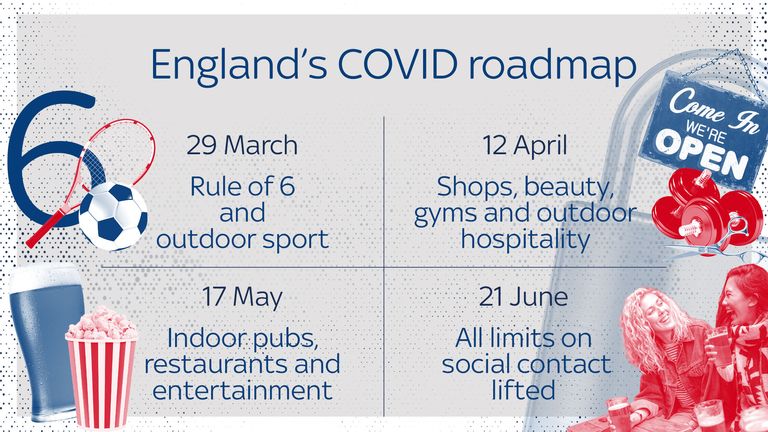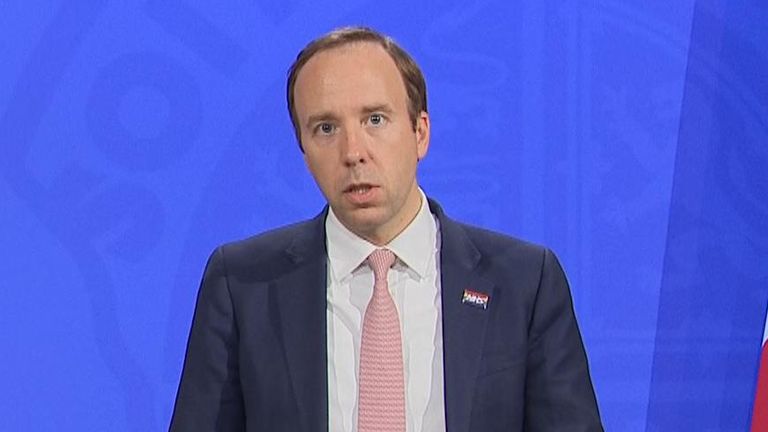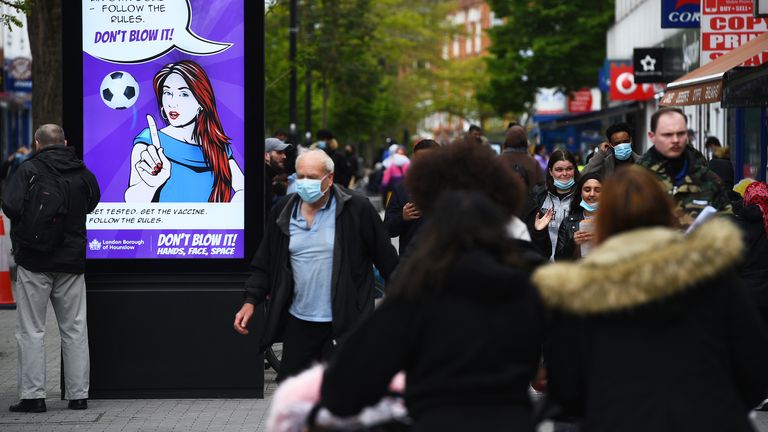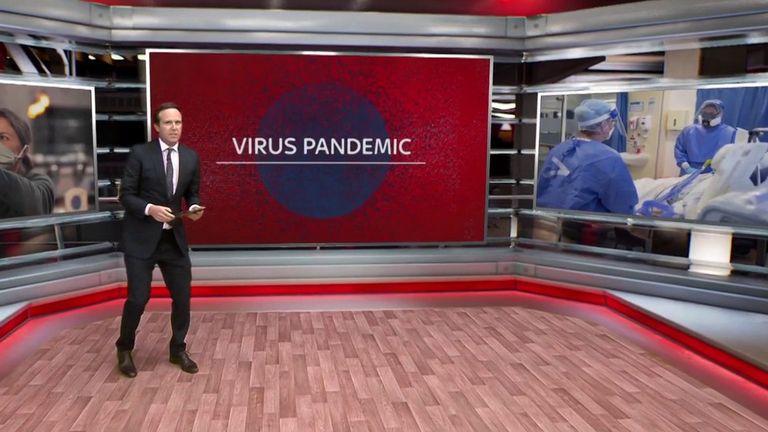COVID-19: Ending lockdown on 21 June looks ‘somewhat in doubt’ as cases of Indian variant continue to surge
Plans to fully reopen society on 21 June “look somewhat in doubt” after cases of the Indian COVID variant in England doubled in the space of a week.
Professor Danny Altmann of Imperial College London told Sky News that the final stage of the roadmap, which would see all limits on social contact lifted, are “balanced on a knife edge”.
With the number of people who have the B.1.617.2 strain nearing 7,000, he said: “I’m not terribly surprised – I think we’d all seen it coming. Frankly, it’s alarming isn’t it?
“Because what we’ve essentially done is set back our clock… going back to the kind of figures we were last seeing about a month ago in terms of new cases. So I think it’s troubling.”
When asked whether the final stage of England’s roadmap for easing lockdown should go ahead next month, Prof Altmann added: “Hopefully there’s some quite careful thought and mathematical modelling being done into this. For my taste at the moment, that looks somewhat in doubt.
“We really are balanced on a knife edge, but surely from all that we’ve all seen in the last 13 or 14 months we realise how unforgiving and relentless this virus is.
“And you can’t joke around with it with half measures.
“And if it looks, for example, like you have a new variant in your country spreading and taking off, it probably is, and you probably want to take that into account.”
On Thursday, Imperial College London’s Professor Neil Ferguson had warned that the full reopening of society on 21 June “hangs in the balance” – adding that the data collected in the next two to three weeks will be “critical”.
Dr Jenny Harries, the chief executive of the UK Health Security Agency, said she agreed with his appraisal during a Downing Street news briefing later in the day.
Warning that the most recent data is worrying, she added: “The roadmap works on four principles to go forward, so it’s on the cases, hospitalisations, the effectiveness of the vaccine programme and then new variants.
“So, in many ways we’re looking at the first part and the last part.”
Although COVID infection rates have risen across most age groups and regions, Public Health England said: “Encouragingly the number in hospitals across the country remains low.”
The hospital admission rate for COVID-19 stood at 0.79 per 100,000 people in the week to 23 May, compared with 0.75 per 100,000 in the previous week.
Health Secretary Matt Hancock also said there were “early signs” that coronavirus rates in Bolton, one of the hotspots for the Indian variant, were starting to “cap out”.
Sky News political correspondent Joe Pike said the concerns “will be a worry for those in the arts, sport and hospitality industries ahead of 21 June”.
When announcing his roadmap out of lockdown, Prime Minister Boris Johnson said he would follow “data, not dates”.
Data suggests that as many as three-quarters of new cases are now of the Indian mutation, prompting the prime minister to warn that the final stage of easing lockdown in England may have to wait.
However, Sky’s science correspondent Thomas Moore has said that the data provided by PHE isn’t all bad.
He explained: “Firstly, two doses of the vaccine are really effective.
“Analysis of 5,600 cases of the Indian variant shows 60% were unvaccinated. Just 3% of them were fully vaccinated.
“Of the 43 people who needed hospital admission, 67% were unvaccinated, just 2% had received both doses.
And finally, eight of the 12 people who died were unvaccinated. All the more reason to get the jab.”
Source: Read Full Article






